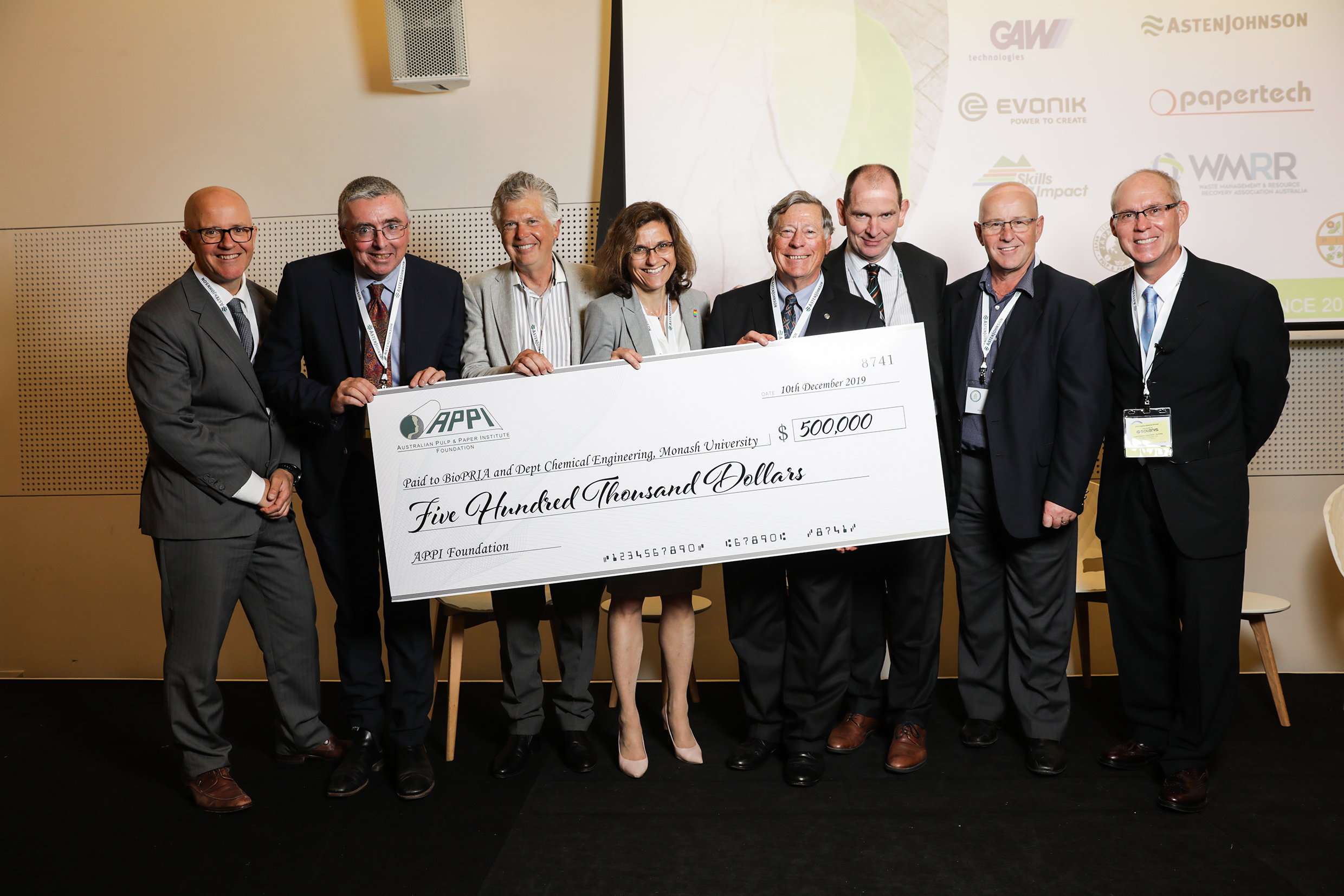
Monash University chemical engineering students are set to benefit from a generous $500,000 philanthropic contribution towards the modernisation and refurbishment of their bioprocessing teaching, learning, research and entrepreneurship spaces, in an announcement made today at the 2019 Appita Fibre Value Chain Conference in Melbourne.
The contribution, made by the Bioresource Processing Institute of Australia (BioPRIA) Foundation Trustees on behalf of Orora, VISY, Australian Paper and Norske Skog, forms part of a wider $20-million dollar renovation of the building at 17 Alliance Lane, home to several of the Department of Chemical Engineering’s teaching and laboratory spaces at the University’s Clayton campus.
The BioPRIA contribution will enable the development of brand new bio-specific teaching facilities including a student-run pilot plant, a dedicated student design and entrepreneurial ‘bioMakerSpace’ to pursue new student-led product developments, and new laboratory spaces equipped to facilitate bioprocessing research. A physical link, connecting the BioPRIA Pilot facility in the existing BioPRIA building to the new teaching and entrepreneurship spaces next door is also under consideration.
With the demand growing for job-ready engineers with a strong understanding of current industry needs, the BioPRIA contribution will help equip students with the technical, research and entrepreneurial skills to drive future innovation across the pulp, paper and packaging value chain, as well as pursue new biological engineering applications such as new materials and technologies for blood diagnostics.
Chemical Engineering professor and Director of BioPRIA, Professor Gil Garnier, said the contribution both celebrates the 30th anniversary of BioPRIA and extends the model of strategic industrial partnership from the Institute further to the Department of Chemical Engineering, the Faculty of Engineering and Monash University. “It highlights the critical link between education and research in the training of innovative leaders ready to transform our industry, and will accelerate the development of a strong biological engineering program to synergise our world-class chemical, materials, and materials engineering programs, just to name a few,” Professor Garnier said. “I am delighted and honoured to be part of this renewed consortium between the Australian bioprocessing industry and Monash University to build a state of the art experimental facility benefiting all of our students and education programs.”
Tim Woods, Chair of The BioPRIA Foundation, said that the pulp and paper industry is a global leader in bio-manufacturing, and has long operated on circular economy principles in Australia. “This major industry investment into Monash University’s educational facilities is a recognition of the opportunities for a more sustainable future that bioprocessing can deliver, and highlights the role of collaboration and the importance of industry in creating that future,” Mr Woods said. “The business case for this latest investment into BioPRIA was compelling for the Australian pulp and paper industry and speaks loudly of industry’s confidence in and commitment to the future.”
Dean of Engineering Professor Elizabeth Croft said that the BioPRIA contribution is a generous investment in the future of a strong and viable bio-manufacturing industry in Australia. “We’d like to thank Orora, VISY, Australian Paper, and Norske Skog for their ongoing support of BioPRIA, and the Department of Chemical Engineering’s educational and research missions,” she said. “This new investment into the future of bioprocessing comes at a crucial moment for industry, as the demand for more sustainable sources for a wide variety of consumer products grows, and new patient-centered approaches to medicine are increasingly required. As a result of this contribution, we now have the opportunity to connect our internationally prominent efforts in bioprocessing research and development to our re-invention of the chemical engineering curriculum, and our full embrace of student training that is green, sustainable, and takes full advantage of the opportunities present in a comprehensive approach to biological engineering.”
Professor Croft, Professor Garnier and Head of Chemical Engineering Professor Mark Banaszak Holl were in attendance at the Appita Conference to gratefully accept the contribution.


